Refuse to create refuse: Plastic in clothing, plastic in water
| Published: 05-27-2023 6:00 PM |
It seems as though the topic of plastic refuse is a wide open, far ranging topic and gets wider by the day. I intend to spend some time this week on plastic drinking bottles but first I need to acknowledge Lynn's email received following the previous article in this series.
Lynn raises an excellent area of concern with the fact that so much of our clothing is made with synthetic fibers. These fibers are manufactured from petroleum just like your drinking bottle. Clothing labels tell us that polyester, nylon, acrylic, polypropylene, and elastane is woven into the fabric we buy, wear, wash, and later discard. These components of our clothing (and rugs and tires and so many other things) are forms of plastic and are one of the three primary sources of microplastics released into our air and water for us to breathe in and ingest along with all other living creatures. There is a good deal of information online concerning this and things we can do to greatly reduce this plastic pollution. Examples are, try to avoid buying products made with these fibers and if you have them in your closet, wash them in cold water with liquid (not powder) detergent or use dissolvable sheets of detergent to reduce friction, line dry them for the same reason, buy fewer and already used clothes that may have fewer loose fibers than new ones. Although there are downsides to cotton, leather, and wool clothing such as pesticides used, and concern for animals, opting for organic cotton and cruelty-free animal sources can mitigate this to a large degree. Yes, these are more expensive but if we limit what we buy, it won't be so bad. Here are two on-line websites I consulted on this topic: goodmakertales.com and the Plastic Soup Foundation. More advice is available there and several other sites. Thanks, Lynn.
Now, on to the plastic drinking bottles: The numbers published on-line by several neutral sources seem to show we have created a monster with our use of bottled water. The UN University Institute for Water, Environment and Health states that one million bottles of water are sold per minute in the world. Another site puts it at half a billion per week. The bottled water industry has grown enormously in the past ten years and expects to accelerate that growth in the next ten years and beyond. So what? Well, there's the fact that plastic in any form requires petroleum for its manufacture and its extraction is a source of greenhouse gas. The incineration of plastic releases chlorine gas and heavy metal ash, and of course the 85% of plastic bottles that are not recycled are going to be around for an estimated thousand years in landfills, the oceans and our roadsides.
Do we need commercially produced bottled water? In some instances, yes, probably. Following a natural disaster that shuts down municipal water supplies, and in areas of groundwater contamination (think PFAS in Merrimack).
But these are mostly temporary situations. In the US, bottled water and tap water are considered equally safe, per the EPA and FDA. Where they are NOT equal is in cost. A family of 4 is estimated to consume 2 gallons of water per day. That amount of tap water would cost them $2.92 per year. If they switch to bottled water, their annual cost is $1,708. Imagine what else you could do with $1708.
There are lots of reasons to let go of the habit of buying and consuming bottled water especially if you live where public water supplies are reliable. In Concord, the water treatment department has a wall covered in awards for the quality of the water delivered to our faucets. Tap water in a reusable bottle makes a whole lot of sense on so many levels and does us all and the earth a huge favor. Think about it.
If you have a tip, question, or suggestion, feel free to send an email to features@cmonitor.com

 Mother of two convicted of negligent homicide in fatal Loudon crash released on parole
Mother of two convicted of negligent homicide in fatal Loudon crash released on parole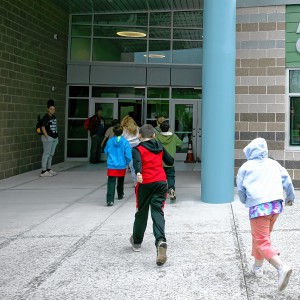 Students’ first glimpse of new Allenstown school draws awe
Students’ first glimpse of new Allenstown school draws awe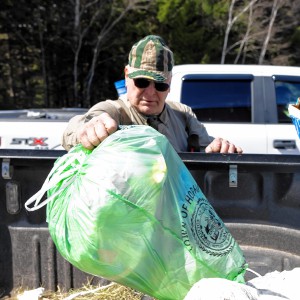 Pay-by-bag works for most communities, but not Hopkinton
Pay-by-bag works for most communities, but not Hopkinton ‘Bridging the gap’: Phenix Hall pitch to soften downtown height rules moves forward
‘Bridging the gap’: Phenix Hall pitch to soften downtown height rules moves forward 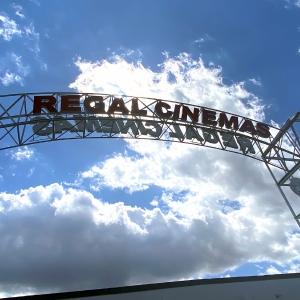 Regal Theater in Concord is closing Thursday
Regal Theater in Concord is closing Thursday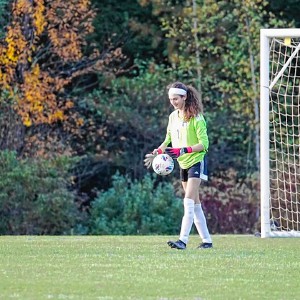 ‘We’re just kids’: As lawmakers debate transgender athlete ban, some youth fear a future on the sidelines
‘We’re just kids’: As lawmakers debate transgender athlete ban, some youth fear a future on the sidelines
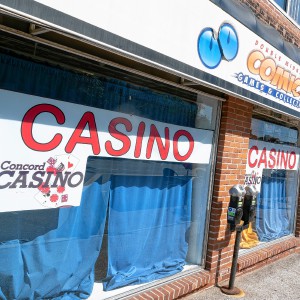 With less than three months left, Concord Casino hasn’t found a buyer
With less than three months left, Concord Casino hasn’t found a buyer Kearsarge Middle School drone team headed to West Virginia competition
Kearsarge Middle School drone team headed to West Virginia competition Phenix Hall, Christ the King food pantry, rail trail on Concord planning board’s agenda
Phenix Hall, Christ the King food pantry, rail trail on Concord planning board’s agenda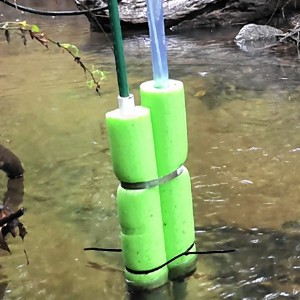 Granite Geek: Forest streams are so pretty; too bad they’re such a pain to measure
Granite Geek: Forest streams are so pretty; too bad they’re such a pain to measure
